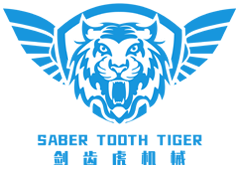03
2025
-
07
How to Choose the Best CNC Busbar Machine for Your Business
How to Choose the Best CNC Busbar Machine for Your Business Table of Contents Introduction to CNC Busbar Machines Understanding CNC Busbar Machines Key Features to Consider When Choosing a CNC Busbar Machine Machine Capacity Precision and Accuracy Automation Levels Software Compatibility Build Quality and Durability Budget
How to Choose the Best CNC Busbar Machine for Your Business
Table of Contents
- Introduction to CNC Busbar Machines
- Understanding CNC Busbar Machines
- Key Features to Consider When Choosing a CNC Busbar Machine
- Machine Capacity
- Precision and Accuracy
- Automation Levels
- Software Compatibility
- Build Quality and Durability
- Budget and Financial Considerations
- Vendor Reputation and Support
- Installation and Training
- Real-World Examples of CNC Busbar Machines
- Conclusion
- FAQs
Introduction to CNC Busbar Machines
CNC (Computer Numerical Control) busbar machines are sophisticated tools essential for manufacturing electrical busbars, which are critical components in electrical distribution systems. The selection of the appropriate CNC busbar machine can significantly influence production efficiency, product quality, and ultimately, your business's profitability. This article aims to provide a comprehensive guide on choosing the best CNC busbar machine tailored to your business needs.
Understanding CNC Busbar Machines
CNC busbar machines utilize advanced technology to automate the process of cutting, bending, and punching busbars made from various materials, including copper and aluminum. These machines are designed to enhance efficiency, reduce labor costs, and improve accuracy in production. Understanding the different types of CNC busbar machines available and their specific functionalities is critical when making a purchase decision.
Types of CNC Busbar Machines
There are several types of CNC busbar machines on the market, each with its own unique features and capabilities. The primary types include:
- CNC Busbar Benders: Specifically designed for bending busbars to precise angles and shapes.
- CNC Busbar Punchers: Focused on punching holes for electrical connections and mounting purposes.
- CNC Busbar Cutters: These machines cut busbars to specified lengths with high precision.
- Multi-Function CNC Busbar Machines: Combine multiple functionalities, offering cutting, bending, and punching in a single unit.
Key Features to Consider When Choosing a CNC Busbar Machine
When selecting a CNC busbar machine, several key features must be considered to ensure that the machine meets your operational requirements.
Machine Capacity
The capacity of a CNC busbar machine refers to the maximum thickness and width of the busbars it can handle. Evaluate your production needs to choose a machine that can accommodate the busbars you typically work with. A machine with a higher capacity may offer more versatility, allowing you to take on a broader range of projects.
Precision and Accuracy
Precision is paramount in the production of busbars, as even slight deviations can lead to significant issues in electrical systems. Investigate the machine's specifications regarding its precision and accuracy levels. Look for machines that can deliver tolerances of ±0.1 mm or better.
Automation Levels
The level of automation can significantly affect productivity. Fully automated machines can operate with minimal human intervention, reducing labor costs and the potential for human error. Evaluate the available automation options in the machines you are considering, including features like automatic feeding and programmable settings.
Software Compatibility
Modern CNC busbar machines are often compatible with various CAD/CAM software. Ensure that the machine you choose can integrate seamlessly with the design software used in your business. This compatibility will streamline your operations, making it easier to convert designs into manufacturing specifications.
Build Quality and Durability
Investing in a robust machine is crucial for long-term performance. Investigate the materials and construction of the machine. Machines made from high-quality materials will typically withstand rigorous use and require less maintenance over time.
Budget and Financial Considerations
Your budget will play a significant role in determining which CNC busbar machine you choose. While it may be tempting to opt for the cheapest option, consider the long-term costs associated with maintenance, operation, and potential downtimes. It can often be more economical to invest in a more expensive machine that offers enhanced features and reliability.
Vendor Reputation and Support
Selecting a reputable vendor is essential to ensuring you receive high-quality machinery and support. Research potential vendors by reading customer reviews, seeking recommendations, and checking their track record in the industry. A good vendor will not only provide a reliable machine but also offer excellent customer service and support, including warranties and maintenance options.
Installation and Training
After purchasing a CNC busbar machine, proper installation and training are vital for optimal performance. Some vendors offer installation services and training programs, which can be beneficial in reducing the learning curve for your operators. Ensure that your team is adequately trained on the machine's features and best practices to maximize its potential.
Real-World Examples of CNC Busbar Machines
To provide a clearer understanding of how different machines perform in real-world scenarios, we will consider a few examples:
Example 1: XYZ Corp's CNC Busbar Bender
XYZ Corp invested in a high-capacity CNC busbar bender capable of processing thicker busbars. The machine has increased their production output by 40%, allowing them to fulfill larger orders and expand their client base.
Example 2: ABC Manufacturing's Multi-Function Machine
ABC Manufacturing opted for a multi-function CNC busbar machine, which combines cutting, bending, and punching capabilities. This investment reduced their equipment footprint and minimized operational costs due to increased efficiency. They report a significant decrease in setup time between different manufacturing tasks.
Conclusion
Selecting the best CNC busbar machine for your business requires careful consideration of various factors including machine capacity, precision, automation, software compatibility, and overall build quality. By thoroughly evaluating these elements and understanding your specific manufacturing needs, you can make an informed decision that enhances your production efficiency and profitability. Investing in the right CNC busbar machine will not only streamline your manufacturing process but also position your business for growth in the competitive electrical industry.
FAQs
1. What is a CNC busbar machine used for?
CNC busbar machines are used for the automated cutting, bending, and punching of busbars, essential components in electrical distribution systems.
2. How do I determine the right capacity for my CNC busbar machine?
Consider the thickness and width of the busbars you typically handle. Choose a machine with a capacity that meets or exceeds your production requirements.
3. What level of precision should I look for in a CNC busbar machine?
Aim for machines that offer tolerances of ±0.1 mm or better to ensure high-quality production and reliability in electrical systems.
4. Is automation necessary for CNC busbar machines?
While not strictly necessary, higher levels of automation can significantly enhance productivity and reduce labor costs.
5. How important is vendor support after purchasing a CNC busbar machine?
Vendor support is crucial for maintenance, troubleshooting, and ensuring that you can maximize the capabilities of your machine. Choose a vendor with a strong reputation for customer service.
Related news





